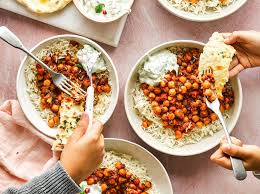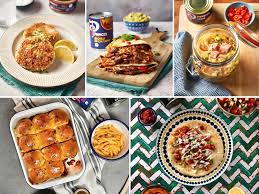How do I store leftovers properly?
Welcome to a world of culinary possibilities where leftovers are not just afterthoughts but opportunities for delicious meals waiting to be rediscovered! Properly storing your leftovers is the key to unlocking their full potential and making meal prep a breeze. Let’s dive into the top tips and creative ideas for storing leftovers like a pro!
Why Storing Leftovers Properly is Important
Leftovers are like hidden treasures in your fridge, holding the promise of quick and convenient meals just waiting to be enjoyed. But without proper storage, these gems can quickly lose their luster and turn into a food waste nightmare.
Storing leftovers properly is not just about extending the shelf life of your meals; it’s also crucial for maintaining their flavor, texture, and nutritional value. By following simple guidelines, you can ensure that your leftovers remain safe to eat and taste just as delicious as they did on day one.
Whether you’re saving a hearty stew for tomorrow’s lunch or preserving a batch of homemade soup for later in the week, taking care to store them correctly will make all the difference. Embracing good storage practices is not only practical but also environmentally friendly, reducing unnecessary waste and making every meal count.
The Top 5 Tips for Properly Storing Leftovers
Let’s talk leftovers! We all know that feeling of not wanting to waste that delicious meal you worked so hard to prepare. So, how can you ensure your leftovers stay fresh and tasty for round two? Here are the top 5 tips for properly storing them:
1. Invest in quality airtight containers or freezer bags to keep your leftovers sealed and prevent air from sneaking in.
2. Utilize the refrigerator and freezer effectively by placing hot foods directly into shallow containers before cooling them down.
3. Remember food safety guidelines like storing perishable items promptly after serving and never leaving them out at room temperature for too long.
4. Label your leftovers with dates to track their freshness and avoid any guessing games when deciding what’s still good to eat.
5. Get creative with repurposing those leftover ingredients into new dishes or incorporating them into lunch prep for the week ahead.
With these tips up your sleeve, you’ll be a leftover storage pro in no time!
Using Airtight Containers and Freezer Bags
When it comes to storing leftovers, using airtight containers and freezer bags can be a game-changer. These tools help maintain the freshness of your food and prevent any potential contamination.
Airtight containers are perfect for storing soups, stews, or salads. They keep the flavors locked in and prevent them from mixing with other foods in the fridge. Freezer bags are great for items like meats or sauces that you want to freeze for later use.
Make sure to label your containers or bags with the date so you know when they were stored. This will help you keep track of how long they have been in the fridge or freezer.
Investing in high-quality airtight containers and sturdy freezer bags is worth it in the long run. They will help reduce food waste and save you money by preserving your leftovers effectively.
Utilizing the Refrigerator and Freezer Effectively
When it comes to storing leftovers, your refrigerator and freezer are your best friends. These appliances can help you extend the shelf life of your food and prevent wastage. In the refrigerator, make sure to store perishable leftovers like cooked meats, dairy products, and prepared salads at or below 40°F (4°C) to keep them fresh.
Utilize clear containers or resealable bags to store leftovers in an organized manner. Labeling with dates can help you keep track of how long they have been stored. When using the freezer, wrap items tightly in foil or plastic wrap before placing them in airtight containers or freezer bags to prevent freezer burn.
Remember that freezing slows down bacterial growth but does not kill bacteria completely. Be mindful of how long you keep leftovers frozen; follow food safety guidelines for optimal freshness. By utilizing your refrigerator and freezer effectively, you can enjoy delicious meals even days after they were first made.
Understanding Food Safety Guidelines
When it comes to leftovers, understanding food safety guidelines is crucial. Knowing how long different types of food can be safely stored can help prevent foodborne illnesses.
Always remember to refrigerate perishable foods promptly and properly. This includes meats, poultry, fish, dairy products, and cooked vegetables.
Make sure to keep your refrigerator at the right temperature – below 40°F (4°C) to slow down bacterial growth.
Label your leftovers with the date they were prepared so you can easily track how long they have been in the fridge or freezer.
Don’t forget that reheating leftovers thoroughly before consuming them is essential for killing any harmful bacteria that may have developed during storage.






